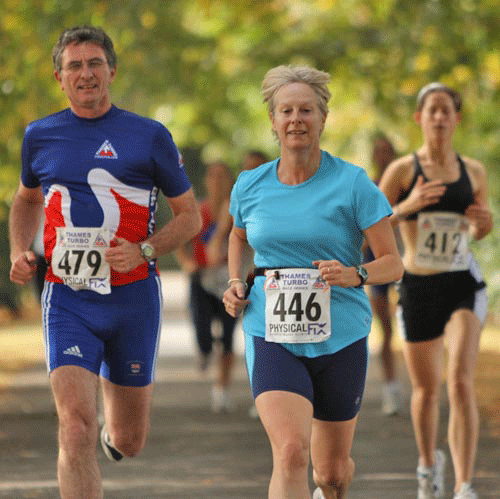see all jobs
Genes determine benefit of exercise
Genes can reveal how much people will benefit from regular exercise, according to a new study.
Researchers from 14 institutions - led by the Pennington Biomedical Research Centre (PBRC) in Baton Rouge, Louisiana, US - found that exercise doesn’t work equally for everyone.
The team - led by Claude Bouchard of the PBRC and James Timmons of the University of London - said that though aerobic exercise can and does increase the maximum volume a body uses during exercise, or VO2 max, some people who exercise experience little or no increased VO2 max.
VO2 max is important due the current belief among researchers that one of the best predictors of health and longevity is our body’s ability to take in and use oxygen during maximum exercise. The more blood our heart can pump and the more oxygen our muscles can use, the less our risk of early disease and death. The higher our VO2 max, the more resistant we are to illness.
People whose VO2 max is unaffected by aerobic exercise may find that physical activity may not help ward off heart disease and other potential ailments.
However, the researchers say they have found a way to look into the human genome and predict who will benefit most from exercise.
According to Bouchard, using lifestyle changes to prevent common diseases - such as starting an exercise routine - would be better targeted if healthcare specialists knew ahead of time who would benefit. Bouchard and his colleagues have just published a comprehensive look at a group of genes that modulate the increase in VO2 max due to aerobic exercise.
Timmons said: “We can now take a biological sample from a person and tell if he or she is likely to increase VO2 max through aerobic exercise training.
“This new approach will help physicians personalise exercise programs to reduce or fight cardiovascular diseases. However, if a patient is not likely to benefit much from aerobic exercise, the physician could turn to other types of exercise or alternative therapies. This would be one of the first examples of personalised, genomic-based medicine.”
In Bouchard and Timmons’ study, published by the Journal of Applied Physiology they and their partner researchers combined the results of two exercise studies conducted in Europe with a very large study performed in the United States.
Participants were asked to undergo rigorous aerobic training, yet nearly one in five participants showed less than a 5 per cent increase in VO2 max, and nearly 30 per cent showed no increase in insulin sensitivity (a risk factor for diabetes).
The researchers first took muscle tissue samples before and after the exercise. Using new informatics procedures developed by one of their collaborators, the Medical Prognosis Institute in Denmark, the team then identified a set of about 30 genes that predicted the increase in VO2 max.
The researchers then discovered a subset of 11 of these genes that also showed differences in DNA sequences among the participants. Participants with a favorable DNA sequence at these genes increased VO2 max most, while participants with an alternate DNA sequence did not benefit as much or at all.
More News
- News by sector (all)
- All news
- Fitness
- Personal trainer
- Sport
- Spa
- Swimming
- Hospitality
- Entertainment & Gaming
- Commercial Leisure
- Property
- Architecture
- Design
- Tourism
- Travel
- Attractions
- Theme & Water Parks
- Arts & Culture
- Heritage & Museums
- Parks & Countryside
- Sales & Marketing
- Public Sector
- Training
- People
- Executive
- Apprenticeships
- Suppliers
















































